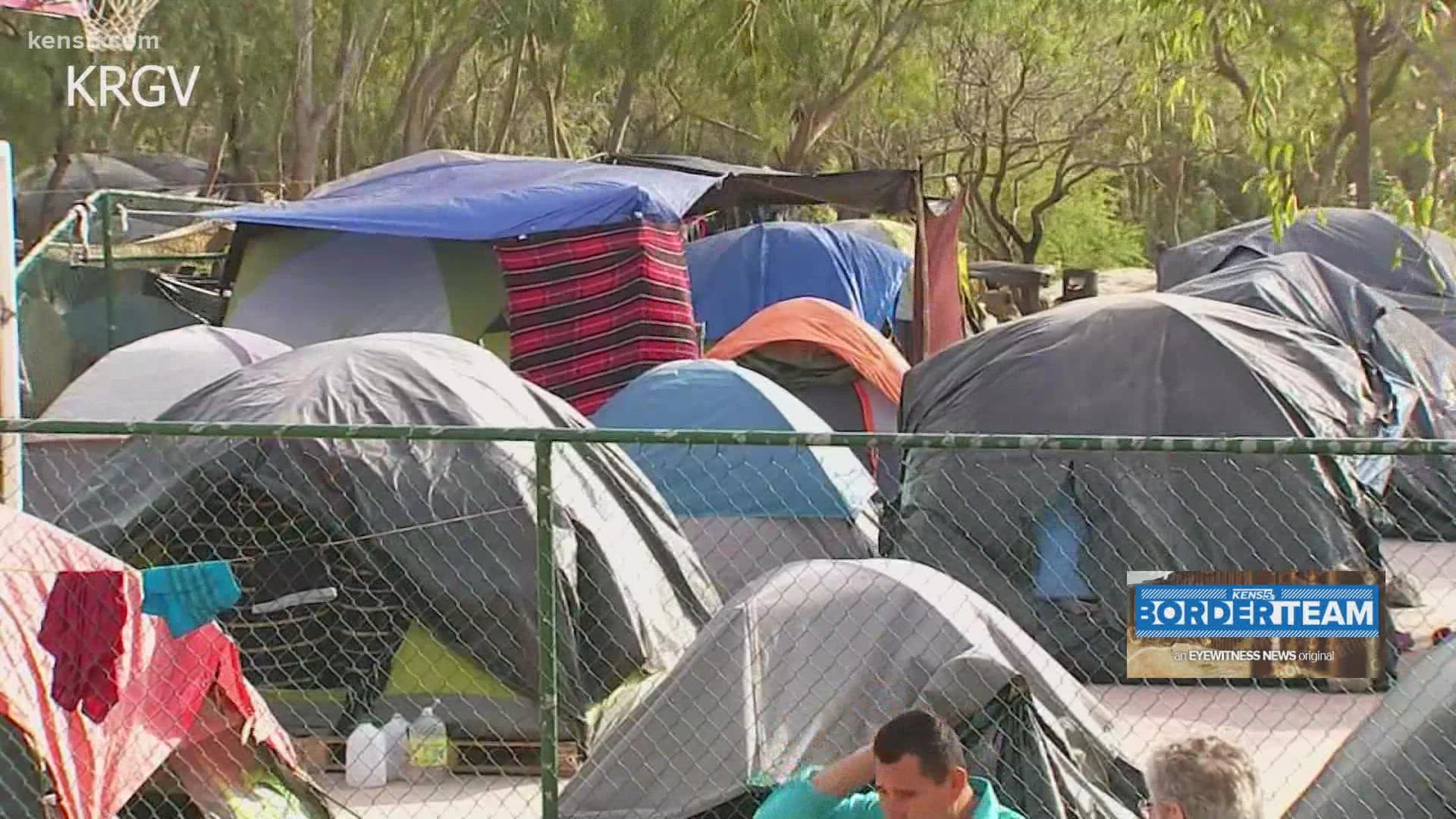SAN ANTONIO — A controversial immigration policy is back in effect on Monday.
In 2019, former President Donald Trump launched Migrant Protection Protocol program, also known as the Remain in Mexico policy.
The program forces asylum-seeking migrants to wait for their immigration court hearing outside of the U.S.
The Biden Administration shut down the MPP program earlier this year until the Supreme Court upheld a ruling by a Texas judge ordering the Department of Homeland Security to reinstate the controversial policy.
Since the ruling, White House officials have not hidden their opposition to the MPP program.
“Deeply flawed. That’s why we stopped enrolling individuals in the program on day one, and subsequently issued a memorandum in June terminating the program,” said White House Press Secretary Jen Psaki in a press conference Friday.
In a press release issued last week announcing the reimplementation of MPP, officials said “Secretary of Homeland Security Alejandro N. Mayorkas has repeatedly stated that MPP has endemic flaws, imposed unjustifiable human costs, pulled resources and personnel away from other priority efforts, and failed to address the root causes of irregular migration.”
Following those court orders, DHS officials said when the policy is fully operational, MPP will take place in seven port of entries along the southwest border, including four in Texas—Laredo, Eagle Pass, El Paso, and Brownsville.
Lindsay Gray is with Vecina, an Austin-based non-profit that provides mentoring and training to pro-bono attorneys and volunteers to help asylum-seeking migrants. The organization has provided support in many immigration hearings.
“MPP delivers many people into the hands of danger into the hands of cartels that have now learned and are systematically targeting folks that are subject to MPP,” said Gray.
She said over 7,600 violent attacks have been reported against migrants since President Biden took office.
“They're facing all kinds of violent attacks, whether that be assaults, a big, big issue in many areas is kidnapping and then extorting phone contacts for ransom,” said Gray.
DHS officials announced “key changes” to the MPP program to address humanitarian concerns.
The changes include working with Mexican officials to ensure the shelters in Mexico are safe for migrants, and will also provide secure transportation for migrants to and from the ports of entries for immigration hearings.
Other changes include providing COVID vaccines to migrants enrolled in the MPP program, completing court cases within six months, and providing migrants better access to legal counsel.
Gray said many asylum-seeking migrants were never given the opportunity to have legal counsel, and for those that did, communication was a challenge.
“Few have access to counsel, but even those that do, they're communicating with their attorneys over WhatsApp in situations where they don't have access to great cell service,” said Gray.
Gray said in the past round of MPP under the Trump Administration only a small number of migrants, less than one percent of the migrants enrolled in the MPP program, were granted asylum, the process not allowing migrants the fair right to present their case.
“It’s just extremely difficult to articulate a claim. Even with the facts being very clearly falling within eligibility for asylum because MPP is so horrendous and just doesn’t provide them the ability to present their case,” said Gray.
She said the new changes to the program could be giving a false hope to migrants.
“Asylum cases revolve around someone's trauma. They are fearing persecution and quite possibly death on account of a protected group, and so they have to relive their trauma,” said Gray. “And when they're already living in another traumatic situation in Mexico, it's incredibly difficult to process those things, to articulate those things.”
DHS officials said once the court injunction is lifted, MPP will be terminated.

